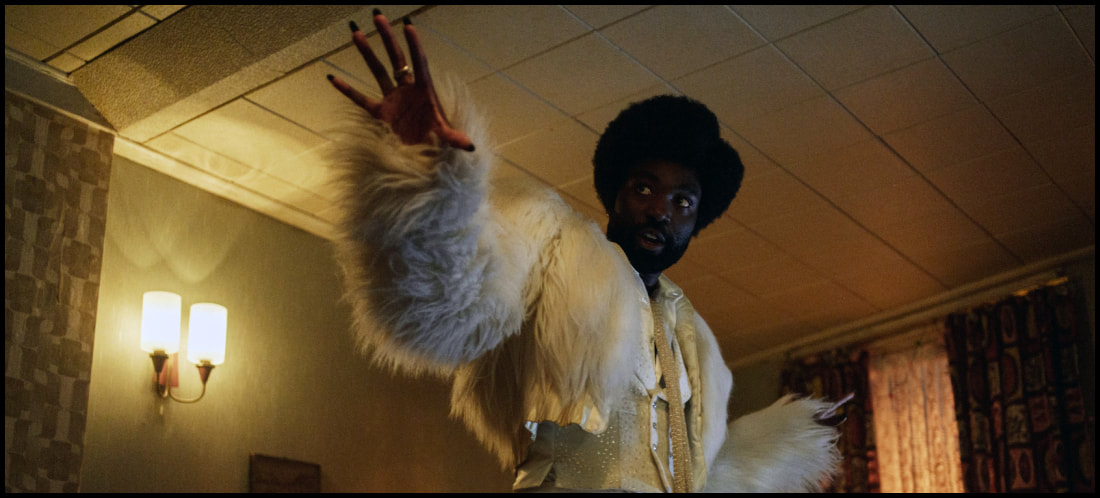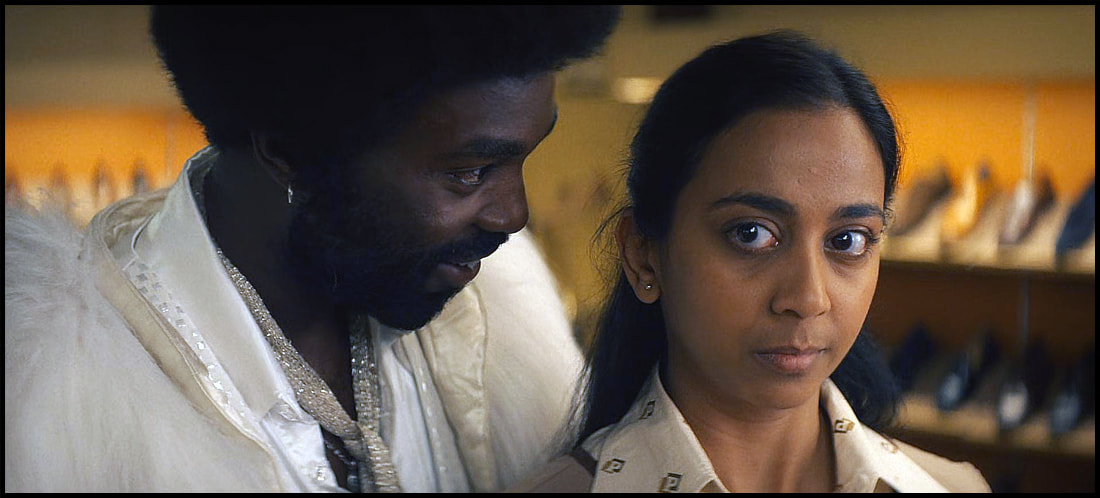A number of years ago, I had a good friend who swore on the written works of Harlan Ellison like they were Biblical scrolls. This friend raved about anything and everything the master had written, and he was always passing along photocopies of his favorite stories here and there for me to explore as well. Me, I wasn’t as enamored with Ellison. Undoubtedly, the author had incredible talent; but where I struggled with what few of his works I had read was that the guy had a penchant for employing a bit of narrative trickery that always seemed to break the spell of what he had otherwise crafted. It’s one thing to create this fantastic universe, and it’s another thing to keep me firmly planted in it from start-to-finish. This is where I had quibbles with his skills.
For example (and I’ll apologize in advance as I don’t remember the name of this particular short story), Ellison had penned this wonderful kinda/sorta time travel yarn. Essentially, it was a series of vignettes involving this do-gooder who – day-by-day – was recounting an event that he/she participated in on each individual day of a certain month as he/she bounded across the eons. June 1st was one adventure, followed by a different one on June 2nd, and so on and so forth. Well, I was captivated by these smaller adventures – one after the other – until the writer broke the spell by setting a next in a series of escapades on June 31. A thinking person will tell you, “There is no June 31.” Then, Ellison went on with June 32nd. June 33rd. June 34th. See the trend? What was an otherwise fabulous and intoxicatingly sweeping journey was now clearly fictional as no days of the calendar have such numbering.
Yes, yes, and yes: I get that maybe I’m kinda/sorta splitting hairs here or perhaps expecting too much of an author. For me, good fiction transcends reality, allowing me to escape within its words, sentences, paragraphs, passages, chapters, and more. When there’s such an obvious break in existence – such as introducing a day that, quite frankly, couldn’t have been – I’m forced out of the otherwise vicarious universe with the reminder that this is all fiction, after all, and that just kinda/sorta kills the mood. For me. Most definitely. With the spell broken, I lose interest. Such is life.
All of this brings me to Black Mirror’s sixth season finale, “Demon 79,” a reasonably effective and modestly clever yarn right up until the screenwriter shatters that fourth wall with a reality that couldn’t possibly have taken place.
(NOTE: The following review will contain minor spoilers necessary solely for the discussion of plot and/or characters. If you’re the type of reader who prefers a review entirely spoiler-free, then I’d encourage you to skip down to the last few paragraphs for the final assessment. If, however, you’re accepting of a few modest hints at ‘things to come,’ then read on …)
From the episode’s IMDB.com page citation:
“Northern England, 1979. A meek sales assistant is told she must commit terrible acts to prevent disaster.”
It’s exceedingly easy for an audience to care for a character so desperately ‘put upon’ as is Nida Huq (as played by Anjana Vasan). The mousy salesclerk goes about her day job always the butt of the joke from her coworkers and the department store’s management staff. Marginalized and ostracized – perhaps in part owed to her ethnicity – Nida bites her tongue instead of lashing out at those around her because she likely learned long ago that speaking up would only bring more of the same. Instead, she’s accepted this forced status as a secondary human being, and she goes about her business hoping that her efforts will speak loudly and well enough to eventually earn her the measure of human decency each of us is owed.
(And in the world of Fantasy, you always know there’s a ‘but’ coming, don’t you?)
While eating her lunch in a basement stockroom, Nida stumbles across an old totem that – when tainted with her blood from an accidental cut – releases the demon named Gaap (a surprisingly convincing Paapa Essiedu). Despite the fact that her activating this spell was entirely unintentional, Nida is still required to fulfill her responsibilities of said activation, namely that being she’s given three days with which to murder three people or her failure to meet the terms will result in the annihilation of all life on planet Earth. The script from Charlie Brooker and Bisha K. Ali does suggest that the potential victims should have earned a bit of notoriety in their past or future – Gaap has the singular ability to see both ways in time, and he largely uses such learned information to convince Nida that she’s actually doing mankind a favor by removing folks who’ve perhaps abused the gifts of life – but as you can imagine none of this lessens the emotional weight the young woman feels over the prospect of becoming a cold-blooded murderer.
In one regard, it’s clear that Demon is about the pursuit of balance.
Nida – a rather obvious social outcast not necessarily of her own choice – struggles to both fit in privately as well as socially, never quite comfortable in her own skin for a variety of reasons. Gaap and his dark pronouncement figuratively suggests that deeds must be performed in order to maintain a measure of equilibrium; either one agrees, or the fate of mankind might fall victim. Even the store manager tries (and fails) to find working solutions to accommodate the wishes and desires of all his staff; while he doesn’t mean to insult Nida, her race, or her way of life, his obsession with maintaining the assumed comfortable middle ground – finding that elusive sweet spot between courtesy and offence – might actually risk the loss of our humanity even though he personally believes he’s achieving – ahem – world peace.
However, where I struggled with the installment is that in the final scenes the fourth wall is demolished, leaving no question whatsoever that what the audience just spent 70+ minutes investing in is nothing more than the figment of a screenwriter’s imagination. Nida and Gaap’s fates – and our world’s as a consequence – couldn’t have happened because this way precisely because … because … well, everyone knows how much I hate spoiling any ending, so I won’t do that here. Let’s just say that things don’t end rosy, and because they couldn’t have ended this badly jerked me out of the story to the point of shattering the narrative possibilities.
The M. Night Shyamalan movies are all built around some twist ending. Whether the audience sees them coming or not isn’t necessarily a bad thing (though I suspect M. Night disagrees). What matters to me – as a viewer – is that I can both watch what evolves organically and accept the consequences within reality as presented. When that presentation suggests that life as we know it may very well have ended for all of us back in 1979 but yet life as we know it never in fact ended, there’s a kind of cognitive dissonance the audience may not be able to reconcile. This audience member couldn’t, and, yes, that kinda/sorta spoils the finish.
Mildly recommended.
“Demon 79” has a solid retro feel to the length of its presentation. It looks and sounds very much like the late 1970’s, bolstering the visceral appeal to those of us who’ve been around and seen a good number of Horrors, Chillers, and Frights from that bygone era. Also, Vasan and Essiedu make for one of the finer small screening pairings as of late, with the two parts making one incredible cohesive whole that elevates even the small moments to something special. Alas, what doesn’t work here – at least so far as this reviewer is concerned – is an entirely fictionalized fate of the world, slamming the door to a reality so much so that I knew it was no longer possible in the slightest. Sad. But it’s still worth a single watch.
Black Mirror’s “Demon 79” (S06E04) was produced by Charlie Brooker and company in cooperation with Netflix. The episode is currently available for viewing on the streaming giant. As for the technical specifications? While I’m no trained video expert, I thought the accompanying sights and sounds were exceptional from start-to-finish.
In the interests of fairness, I’m pleased to disclose that the entire sixth season of Black Mirror is presently available to me as a current Netflix subscriber, and I was provided absolutely no advance screening of any episodes in exchange for a complimentary review.
-- EZ



 RSS Feed
RSS Feed